Feeding small pets
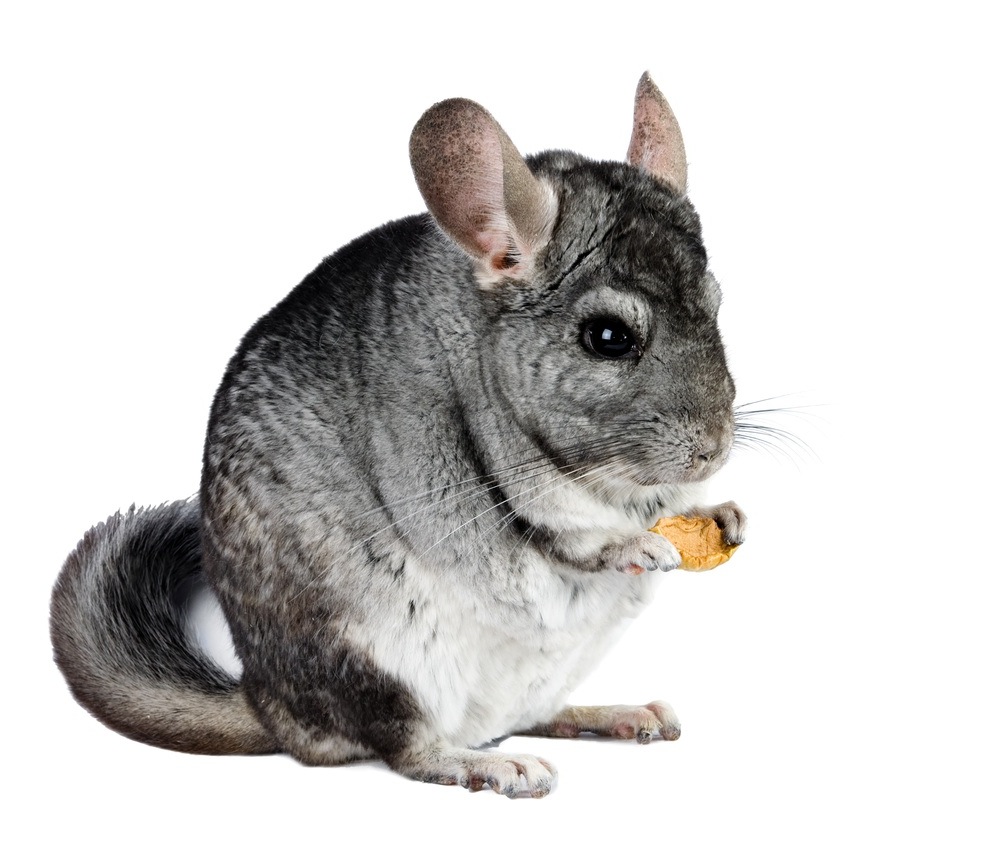
Manufacturers have invested heavily in order to be able to provide small pets with a wide selection of suitable foods, ranging from rabbit and chinchillas pellets to specialist diets for pygmy hedgehogs.
A considerable amount of research has been carried out to give a clear understanding of the nutritional needs of the various small animals being kept as pets today, allowing these foods to be developed. There are very important differences too. Get it wrong, and your pet will fall ill and could even die......
Different diets
Chinchillas especially have very specific feeding requirements, reflecting the fact that they originate from the Andean mountain region of South America, where food is naturally in short supply. They subsist there on a very meagre ration of plant matter. They therefore need to be fed on a combination of special high fibre pellets and hay, although you can add alfalfa cubes - made from a type of grass - to provide some variety alongside the hay.
Chinchillas must not be offered treats such as sunflower seeds which have a high oil (fat) content. Their liver is not equipped to cope with this type of rich food, although they will eat such foods very readily if given the opportunity, and are likely to end up dying prematurely as a result.
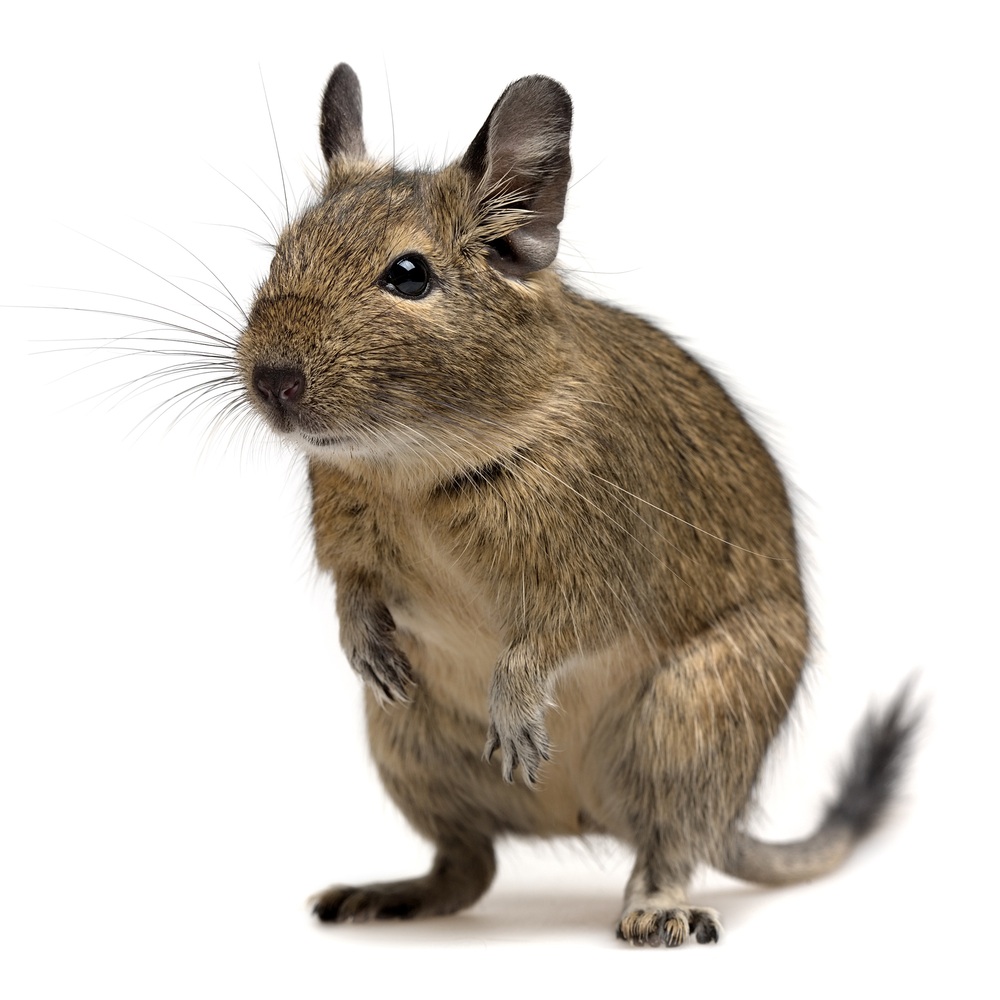
Degus (above) require similar food to chinchillas. Offering them a seed-based diet, as is typically used for rats and mice, can predispose them to developing diabetes mellitus. This medical condition is a serious risk in the case of these small animals, just as in people who are overweight. Most food mixes and treats now contain no added sugar for this reason, but their ingredients may include natural colourants.
Individual components in seed mixes can be a problem in some cases too. As an example, peanuts have been linked with skin problems in Mongolian gerbils. Pelletised diets have become more popular for this reason, because the key ingredients are all present in the food. This helps to ensure that your pet receives a balanced diet, without being able to pick out favoured items, as is possible with a seed mixture.
Vitamins
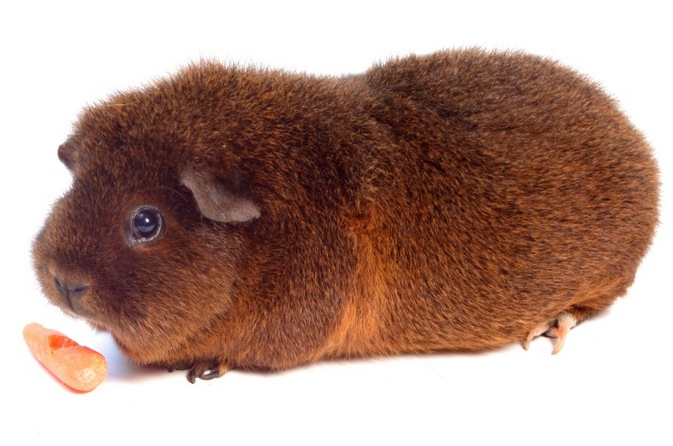
Nutritional deficiencies are a potential problem, but again, they can be overcome by using the right type of prepared food. Guinea pigs are unusual, because they are not able to make Vitamin C in their bodies. It must be present in their diet, in order to prevent them developing signs of the skin disease known as scurvy. This is reflected by hair loss, and cracked, bleeding skin in more extreme cases.
If you keep both a rabbit and a guinea pig therefore, you do need separate foods for them, because only the guinea pig food will contain Vitamin C. Also, do not exceed the recommended use-by date, because otherwise, the Vitamin C content will decline rapidly to a sub-optimal level, especially once the pack is open, leaving your pet again at risk of suffering from scurvy.
Thankfully though, it is not difficult to purchase suitable prepared foods for all types of small animal pets these days. Even if you do not have a specialist pet store near you, suitable diets can be ordered easily on the internet.
Using prepared foods
Choose the right type of food for your pet.
Store it in a dry environment, so there is no risk of it turning mouldy.
Avoid buying large quantities which cannot be finished up before the 'use by' date.
Follow the on-pack feeding advice, to prevent your pet becoming overweight.
Be sure to offer hay and fresh food as appropriate.
Provide fresh drinking water at all times.
Treats
These food items are a great way to build up a bond with your pet, as they can be used to encourage it to take food from your hand. There are various types of treat to choose from, and they usually have vegetables and fruit added to them, often being in the form of a biscuit-like products.
Treats are usually very appealing to all small pets, but do not offer them more frequently than recommended. They are not a substitute for a regular food, and if used to excess, they could also cause your pet to put on weight, potentially leading on to an early death.
 Did you know?
Did you know?Just as with dogs and cats, you can now buy special foods for young rabbits and also for breeds of different sizes.
Hay
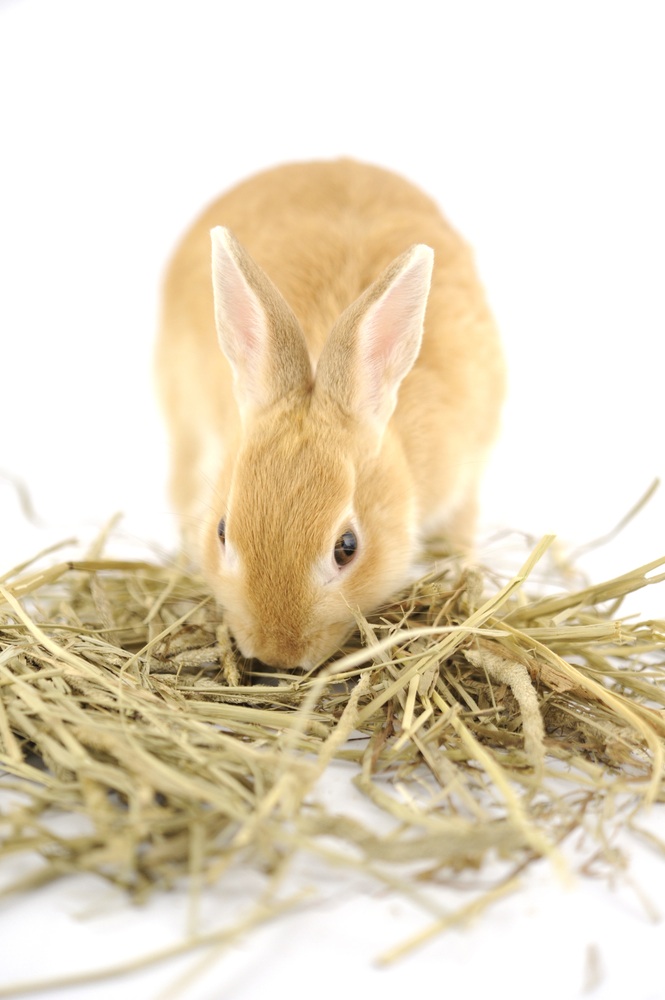
Hay is a very important part of the diet of many small animals, such as chinchillas, degus, guinea pigs and rabbits, helping to provide them with bulk and fibre. Chewing hay also helps to keep their teeth in trim. This is important, because unlike our teeth, those of rodents and rabbits will continue growing throughout their lives, and they need wear, because otherwise, they will become overgrown, causing the animal to have difficulty in eating.
As a natural product, hay can be of variable quality. It needs to be clean and free of dust, as this could otherwise harm your pet's breathing. If you have a large collection, you may want to buy hay by the bale, but a better option is to use packaged hay, available through pet shops. Meadow hay of this type is of consistently high quality, and will have been processed so that any significant levels of harmful dust have been removed.
Dried herbs
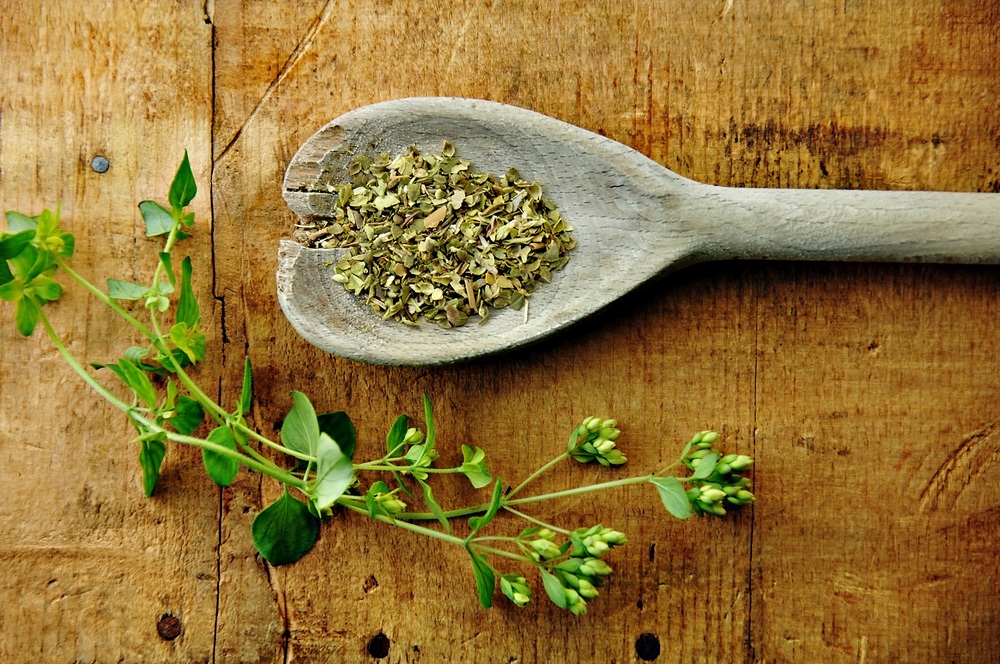
It is not always practical to provide fresh greenstuff, but as an alternative, it is possible to acquire dry herb mixes for small pets. These can include items such as clover and dandelion, which can be provided in this form when the plants themselves may be hard to acquire over the winter months.
These dried herb mixes may be loose, or are sometimes compressed into small blocks, which your small pet will be able to nibble away at, using its sharp teeth. Certain herbs are recommended for particular purposes. Raspberry leaves, available in dry form, are traditionally advised for pregnant guinea pigs and rabbits, in the belief that they will contribute to an easy birth, while oregano - as illustrated - is said to protect against stress.